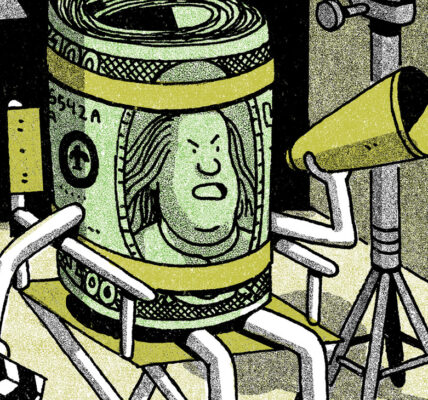The Ozu Collection – If the word ‘melodrama’ evokes shrill revelations, explosive reversals and over-demonstrative character meltdowns, then you might be surprised to see these three films united under that genre banner. Sure, all three of Woman of Tokyo (Tokyo no onna, 1933), Early Spring (Shoshun, 1957) and Tvtoto Tokyo Twilight (Tokyo boshoku, 1957) – the first separated from the other two by a quarter century that included the Second World War and the atomic devastation of Nagasaki and Hiroshima –focus on everymen and everywomen struggling through the contradictions within their society, and all three have room for abandonment, despair and suicide – but far from being hysteria-tinged tearjerkers filled with scabrous sensationalism, these films offer a kind of drama that is remarkably restrained and quiet – so much so, in fact, that the most scandalous revelation in Woman of Tokyo is confined to a character’s whisper that remains not only unheard (this is a silent, after all), but beyond even the subdued grasp of the film’s intertitles.
Introduction of The Ozu Collections
In his introductory essay to the booklet accompanying this double-disc set, Tony Rayns comes right out with it, declaring in his opening paragraph, “Ozu never made a melodrama as such,” and in his closing paragraph, “Ozu characteristically minimises melodramatic excess.” So these three films are not so much melodramas as perhaps a little more melodramatic than the rest of his output (bearing in mind that the director himself once described as “one of my most melodramatic film” that most unlikely of candidates for the label, 1953′s Tokyo Story) – ‘more melodramatic’ in the sense that the briskly economic 45-minute duration of Woman of Tokyo makes its day-and-a-half of narrative time seem unusually full of incident (including a vicious beating) by Ozu’s standards, and that both Early Spring and Tokyo Twilight explore infidelity and its enduring aftermath (with the latter film one of Ozu’s bleakest in its outlook). Of course, a boxset of films by Ozu hardly requires justification for its existence – but those who seek a common thematic thread to link the three films in this collection, but who also find themselves dissatisfied with the ‘melodrama’ handle, might prefer to see each title as reflecting a transitional period in the director’s times and filmography.
Made as a ‘quickie’ to fill a gap in Shochiku’s production schedule, Woman of Tokyo represents a significant departure from the student comedies for which Ozu had till then been most famous towards something more plainly dramatic. The film purports, entirely falsely, to have been adapted from a novel by one ‘Ernst Schwarz’, and one scene in a cinema features two characters (and us along with them) watching a sequence from ‘The Clerk’, Ernst Lubitsch’s contribution to the Depression-era anthology If I Had a Million (1932) – yet even as this film-within-a-film’s office setting is clearly echoed by the office typing pool where we see Ozu’s protagonist Chikako (Okada Yoshino) working, the wish-fulfilment comedy of Lubitsch’s film is in stark contrast to Ozu’s mode of realist tragedy.
Dutiful Chikako does everything that she can, both at home and at work, to support the university education of her younger brother Ryoichi (Egawa Ureo) – but when it emerges that the typist is not in fact spending her evenings assisting a professor with translation, but instead earning money on the side as an entertainer and prostitute at a seedy cabaret bar, Ryoichi fails to comprehend his sister’s self-sacrificing motives, with harrowing consequences.
“What if your sister wasn’t who you think she is?”, asks Ryoichi’s girlfriend Harue (Tanaka Kinuyo). It seems apt that Chikako, the titular (and emblematic) Woman of Tokyo, should remain misunderstood even after she has been exposed. For Ozu’s film
dramatises a hidden history of the women behind Japan’s men, while simultaneously highlighting the lack of interest in such female narratives within mainstream ideology. “There’s no scoop to be had in this story,” says one investigative journalist to another at the scene of Chikako’s unravelling – while in the film’s final, off-kilter sequence, we see the same two reporters discussing their rivalry in acquiring stories about (male) gangster rings. In this way, Ozu carefully uses contrasts of genre to limn the outlines of his own drama’s particularity as neither a comedy nor a crime story. Along the way, Ozu engages in some of his earliest experiments with the low-angle camerawork and ‘pillow shots’ (cutaways to inanimate objects) that would subsequently come to typify his filmmaking style.
When Early Spring and Tokyo Twilight were released 24 years later, Ozu’s style had well and truly established itself, but these films – the first that he would make after a four-year hiatus since the release of Tokyo Story (1953) – marked another transitional point in the director’s career. As gradually throughout the Fifties cinema was losing its viewers to television, innovations like colour and ‘Scope were introduced in an attempt to win them back, and these were the last two films that Ozu would shoot in black and white, with the noirish chiaroscuro of Tokyo Twilight serving as the director’s great swansong to monochrome. There is also, in keeping with the emergence of youth culture in the post-war economy, a conspicuous attempt to shift the focus of these films to a younger generation’s experiences. Akiko (Arima Ineko), the doomed heroine of Tokyo Twilight, is at one point even described as a ‘delinquent’ – and though she comes from a respectable (if dysfunctional) family, her walk on the wild side will lead her to mahjong parlours, abortion clinics, and even a late-night stay at a police station (along with that most unexpected of incidental characters in an Ozu film, a man arrested for stealing women’s panties).
Early Spring‘s main character Shoji (Ikebe Ryo) is a salaryman in his thirties – old enough to be a veteran of the Second World War, to have settled into a marriage no longer ruled by passion, and to have fathered a son (who died in his infancy), and yet still much younger than his one-time mentor Onodera (Ryu Chishu) whose fate as a long-term company man now exiled out in the sticks may well reflect Shoji’s own future. Commuting everyday from the suburbs to a Tokyo fire brick company, and spending more and more nights out late to avoid his frosty homelife with wife Masako (Awashima Chikage), Shoji strays into the arms of needy, single office girl ‘Goldfish’ (Kishi Keiko), creating a crisis in his marriage just at the moment when he must also decide whether to transfer to a rural post.
Ozu’s longest feature, Early Spring examines the lot of Japan’s growing legions of salarymen, struggling to balance the demands of work with domestic lives and financial pressures. Yet despite giving full expression to the disappointments and despair of white-collar drudgery, and focusing on a twentieth-century cypher haunted by both his son’s death and a colleague’s suicide, the film manages to locate a bittersweet kind of hope in the marital bond, and ends in fragile reconciliation and the restoration of a dream which, though perhaps empty, gains strength precisely from being shared.
The last film in the collection, Tokyo Twilight, also concerns a family quietly devastated by loss – albeit loss of a rather different kind. Some twenty years after Kisako (Yamada Isuzu) suddenly left her banker husband Shukichi (Ryu Chishu), her son and two young daughters for another man, the family is still bearing the scars of its abandonment. The son has long since died in a mountain climing accident, and eldest daughter Takako (Hara Satsuko) is now in her own dissolving marriage, and worries that history will repeat itself for her own infant daughter – while wayward, depressed younger sister Akiko, who no longer even remembers Kisako, seeks to resolve her sense of not belonging by drifting downtown into the arms of a feckless student (Taura Masami). The re-emergence of Kisako (Yamada Isuzu) in Tokyo precipitates a catastrophe in their lives.
The only post-war film that Ozu set in mid-winter is arguably also his chilliest, combining in its final scenes not just the desertion of the older generation by the young (as in 1949′s Late Spring – and with the same key actors), but also an overt lack of climactic reconciliation, and the tragic death of a character whose last words are precisely a declaration of her strong desire to go on living. Suffused with a shadowy melancholy and pessimism, the film certainly packs a devastating (albeit characteristically understated) emotional punch – but on the way it is occasionally marred by meandering scenes that belie the usual economy of Ozu’s minimalism. Ozu and his regular writer Noda Kogo argued over the screenplay, and Noda reportedly disapproved of the final film. We may never know exactly what bothered the screenwriter about Tokyo Twilight, but for what it is worth, in Akiko’s seemingly endless quest for love and identity, there are several longueurs that make for less than riveting viewing – which is certainly not true of the other two films in this collection, or indeed of the Ozu filmography in general.
Click here to read about “Empowering Bollywood: 5 Dynamic Ways It Shapes Global Trend” In this article, we will explore the global influence of pop culture, focusing on the two powerhouse industries – Hollywood and Bollywood. From blockbuster movies to iconic celebrities, we will delve into how these entertainment powerhouses shape our beliefs, lifestyles, and even fashion choices.










